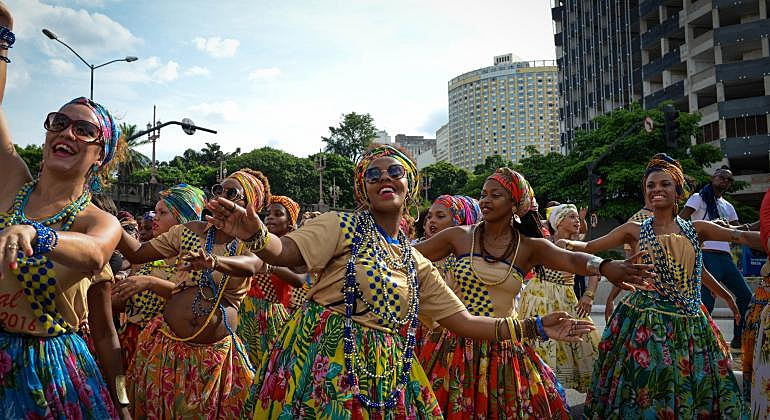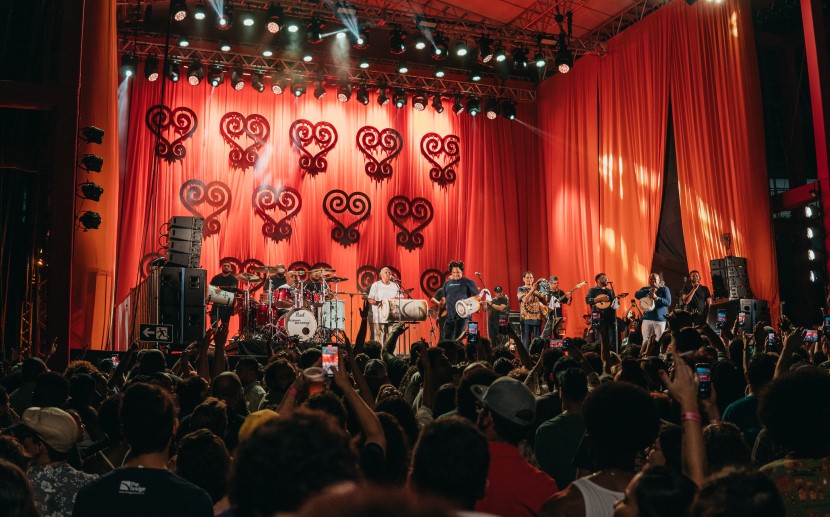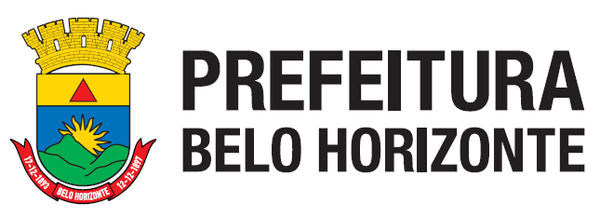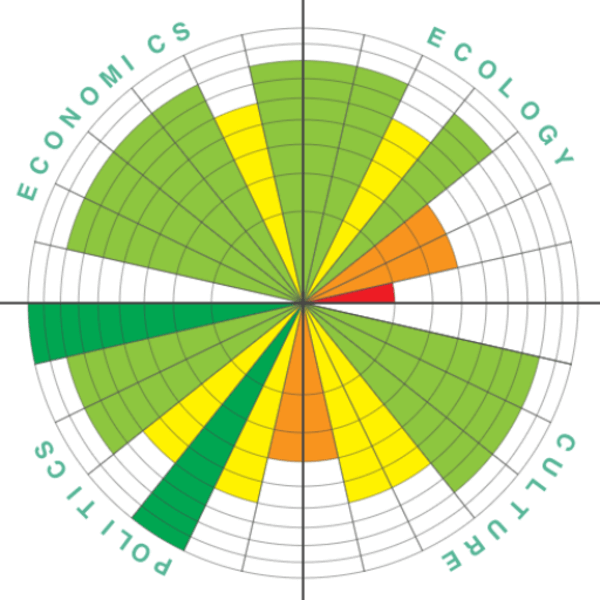 Black Arts Festival seeks to enhance Brazil’s black culture in Belo Horizonte - © Thainá Nogueira / Prefeitura de Belo Horizonte
Black Arts Festival seeks to enhance Brazil’s black culture in Belo Horizonte - © Thainá Nogueira / Prefeitura de Belo Horizonte Musical Performance at Black Arts Festival - © William Gomes/Prefeitura de Belo Horizonte
Musical Performance at Black Arts Festival - © William Gomes/Prefeitura de Belo Horizonte
City
Belo Horizonte
Main actors
City Government
Project area
Whole City/Administrative Region
Duration
Ongoing since 1995
The Black Arts Festival, in Portuguese Festival de Arte Negra (FAN-BH), is a biennial event dedicated to valorizing and disseminating African-influenced art in Belo Horizonte. Since 1995, the festival has offered a diverse cultural program, engaging artists, groups, and researchers from the Black arts and culture scene. It aims to strengthen traditional African roots and contemporary expressions, including those resulting from cultural interactions. FAN-BH serves as a significant forum for local, national, and international artists to share ideas, procedures, and techniques on Black Artistic expressions. Participants are involved in workshops, artistic presentations, and informal gatherings at Ojá – Market of Exchanges and Knowledge, a space hosting various cultural activities. The festival's international character fosters artistic formation and exchanges, positioning Belo Horizonte as a global hub for such events. It also supports the strengthening of cultural identities and encourages understanding of the origins and integration of diverse African-influenced cultures.
The Black Arts Festival (FAN-BH) was established in 1995 in Belo Horizonte, Brazil, with the aim of valuing and promoting African-influenced art. It emerged from the need to recognize the contributions of Black culture to Brazilian society and to promote diversity and intercultural dialogue. Since then, the festival has been a crucial space for celebrating the ancestral roots and contemporary expressions of Black arts, strengthening both traditional African matrices and the influences resulting from contact with other cultures.
With a diverse program, FAN-BH provides a space for meeting and exchange among artists, groups, and researchers from Black arts and culture, promoting dialogue and the exchange of experiences. Additionally, the festival stimulates artistic and cultural formation through workshops, lectures, and other educational activities, contributing to social inclusion and the valorization of diversity, while combating racism and all other forms of discrimination. FAN-BH also plays an important role in positioning Belo Horizonte as a reference point for African-influenced cultural events, strengthening its cultural identity and international projection.
The implementation process of the Black Art Festival (FAN-BH) involves a series of stages and activities aimed at ensuring the success and relevance of the event. From conception to execution, various actions are taken to ensure that it meets the expectations of the audience and fulfills its objectives. One of the first steps in the implementation process of FAN-BH is defining the theme and program of the festival. This involves selecting artists, groups, and researchers who will participate in the event, as well as determining the locations and dates of the presentations and activities. Another important aspect of the implementation process is fundraising. The festival relies on the support of sponsors, partners, and government agencies, who contribute financially to make the event possible. In addition, marketing and promotional activities are carried out to attract the public and ensure the success of the festival.
In the implementation phase, production and logistics activities are also carried out, such as setting up structures, hiring services and technical staff, and organizing festival activities. It is important to ensure that everything is ready and working properly to receive participants and the general public. During the festival, a variety of activities take place, including artistic performances, exhibitions, workshops, lectures, and debates. These activities are spread out over the days of the event to provide a rich and diverse experience for participants. After the festival concludes, an evaluation of the results and impact of the event is conducted. Aspects such as the number of participants, the quality of the activities, media coverage, and audience satisfaction are analyzed. This evaluation is important to identify the strengths and weaknesses of the festival and to guide the organization of future editions.
In summary, the implementation process of the Black Art Festival involves various stages and activities aimed at ensuring the success and relevance of the event. From defining the theme and program to executing activities and evaluating results, planning, organization, and dedication are required to fulfill the festival's mission of valuing and disseminating African-influenced art.
The funding for the 2023 Black Art Festival (FAN-BH) totaled around USD 527,000.00, a crucial aspect of ensuring the festival's success and impact. Government support plays a significant role, with both municipal and state levels providing financial backing to promote cultural events like FAN-BH. Additionally, partnerships with cultural institutions allow for collaboration in funding and resources, expanding the reach and impact of the festival. The allocation of this funding is meticulously planned, covering expenses such as artist fees, production costs, venue rentals, marketing and promotion, and logistical arrangements. The transparency and accountability in managing these funds are paramount, ensuring that they are utilized efficiently to deliver a high-quality and memorable festival experience for participants and attendees.
The 2023 Black Arts Festival (FAN-BH) had significant results and impacts on various levels. Firstly, it contributed to the promotion and preservation of African-influenced art and culture, showcasing the richness and diversity of these traditions to a wide audience. The festival's diverse and multilingual programming attracted a large and diverse audience, including both local residents and visitors from other regions. The festival also had a positive impact on the local economy, particularly in the creative sector. By providing a platform for entrepreneurs in fashion, art, crafts, beauty, and literature, the festival helped to stimulate economic activity and create new opportunities for local businesses. Additionally, the festival's emphasis on African-Brazilian themes and artists helped to promote greater inclusion and diversity in the cultural sector.
Furthermore, the festival contributed to the social fabric of Belo Horizonte by fostering a sense of community and belonging among participants and attendees. Through its various activities, such as workshops, lectures, and artistic presentations, the festival provided a space for dialogue and exchange, helping to break down barriers and promote understanding between different cultural groups. Overall, the 2023 FAN-BH was a resounding success, achieving its goal of promoting African-influenced art and culture while also contributing to the economic, social, and cultural development of Belo Horizonte. The festival's impact will likely be felt for years to come, as it continues to inspire and engage audiences with the richness and beauty of African heritage in Brazil.
Despite its successes, the Black Arts Festival (FAN-BH) faced several barriers and challenges that impacted its implementation and outcomes. One significant challenge was the ongoing COVID-19 pandemic, which forced the festival to adapt its format and activities to comply with health and safety regulations. This required additional resources and planning to ensure that the festival could still take place while protecting the health of participants and attendees. Another challenge was securing funding and resources for the festival. While the festival received financial support from various sources, including government grants and corporate sponsorships, securing these funds required extensive planning and coordination. Additionally, the festival faced competition for funding from other cultural events and initiatives, which limited the resources available for FAN-BH.
Furthermore, the festival faced challenges in terms of audience engagement and participation. While the festival aimed to attract a diverse audience, including both local residents and visitors, reaching and engaging these audiences required effective marketing and promotion strategies. Overall, while the 2023 FAN-BH was successful in overcoming many of these challenges, it highlights the complex nature of organizing large-scale cultural events and the importance of adaptability, resourcefulness, and collaboration in ensuring their success.
One of the key lessons learned from the 2023 Black Arts Festival (FAN-BH) is the importance of adaptability and resilience in the face of challenges. The festival demonstrated that even in the midst of a global pandemic, it is possible to organize a successful cultural event by adapting its format and activities to comply with health and safety regulations. This flexibility allowed the festival to continue its mission of promoting African-influenced art and culture while also prioritizing the health and safety of participants and attendees. Another important lesson learned is the value of collaboration and partnership in organizing a large-scale cultural event. The festival's success was made possible by the support of various stakeholders, including government agencies, corporate sponsors, cultural institutions, and local communities. By working together, these partners were able to overcome funding challenges, secure suitable venues, and reach a diverse audience.
The transferability of these lessons to other cultural events and initiatives is significant. The experience of the 2023 FAN-BH demonstrates that with careful planning, effective collaboration, and a commitment to adaptability, cultural events can continue to thrive even in challenging circumstances. These lessons can be applied to future festivals and events, ensuring that they are able to overcome barriers and challenges and achieve their goals of promoting culture, fostering community engagement, and enriching the cultural landscape.
External links / documents
On Map
The Map will be displayed after accepting cookie policy

